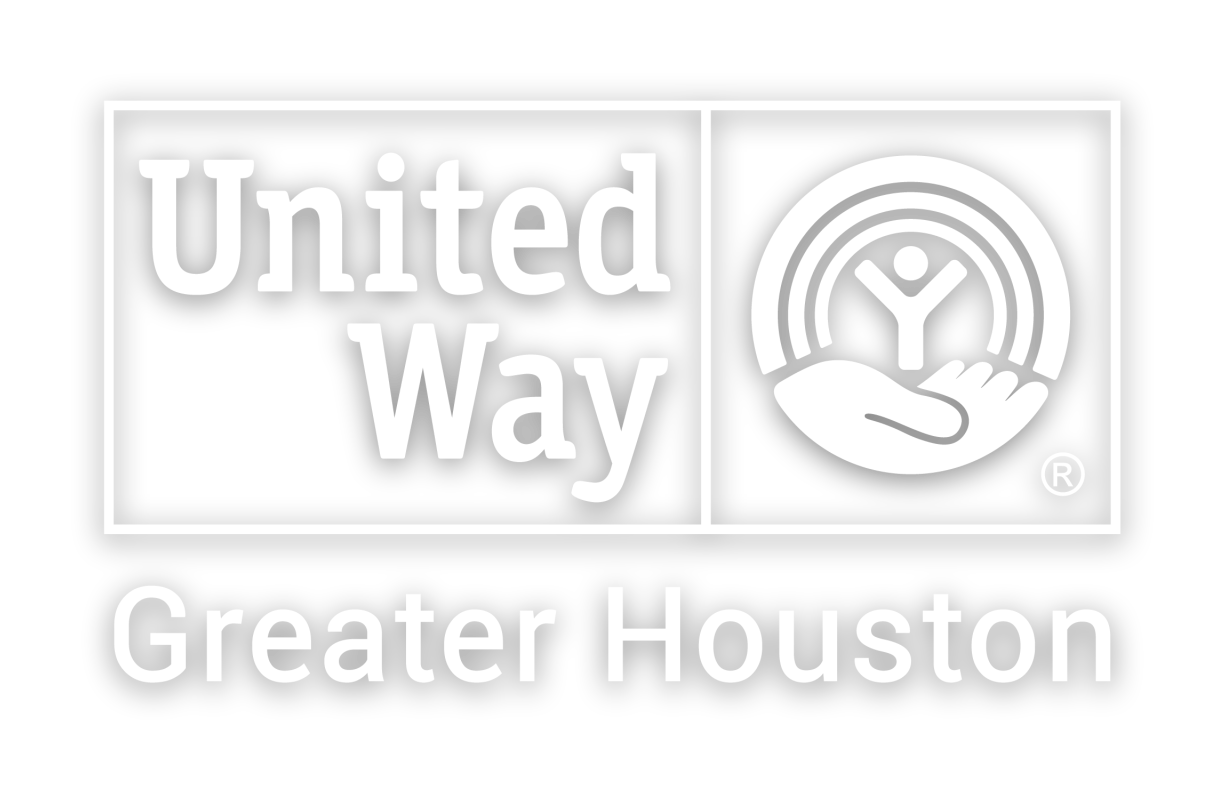HOUSTON (July 7, 2022) – United Way of Greater Houston today announced another important step in the implementation of its new strategic plan to help more area families on their pathway to financial stability – the development of a technology tool that will integrate the network of providers and services. The technology will also create data-driven opportunities to improve programs and services.
The Integrated Client Journey (ICJ) Technology Tool will eventually connect over 100 independent nonprofit agencies serving financially struggling households across the United Way’s four-county service area. According to the developer selected for the project, nonprofit Patient Care Intervention Center (PCIC), the tool is a first-of-its kind for Greater Houston’s social services sector.
A team of navigators will use the ICJ Technology Tool as they coach families and individuals on their journey to financial stability. It will help navigators and clients identify and access services based on the client’s individual needs and goals. United Way’s approach to helping families attain a more sustainable financial future includes services such as workforce development and financial coaching; early childhood and youth development programs; physical and behavioral health care services; basic needs assistance; and services and support for those escaping violent situations.
“At United Way, we’re focused on connecting people with possibility,” said Amanda McMillian, president and CEO, United Way of Greater Houston. “When you’re working multiple jobs, caring for a family and living paycheck-to-paycheck, navigating the network of social service resources can be a daunting task. The goal of our technology tool is to dramatically improve access to these resources by making it easier for you to connect with the services you need, assisted by a skilled navigator who knows your goals.”
Based on over a decade of experience with United Way’s THRIVE financial stability program, United Way knows that the journey to financial stability varies based on each person’s situation and the services and support they need. The ICJ Technology Tool will serve as a comprehensive tool to support greater continuity of care between service providers; track client progress; identify gaps in services and best practices; and measure the program’s impact across Greater Houston.
Featuring a cloud-based infrastructure, the ICJ Technology Tool will allow nonprofits to maintain their existing technology infrastructure. The tool will also adhere to all regulatory, security and privacy requirements.
McMillian adds that United Way’s broader vision for the ICJ Technology Tool is to connect all nonprofit providers in the community who wish to use the technology to improve client access and enhance coordination with other providers. “Working together, we can expand our ability to make those meaningful, life-changing connections for those in need.” she said.
After a 90-day RFP process, United Way selected PCIC, a nonprofit technology company and social enterprise, as project developer because of its proven expertise in building and operating technology that meets complex, secure data and resource coordination needs. PCIC anticipates that United Way’s tool will be ready to launch in fall 2022.
“We are thrilled to collaborate with the United Way of Greater Houston to develop the technology and data solution for an Integrated Client Journey that will support the Asset Limited, Income Constrained, Employed (ALICE) population,” said Kallol Mahata, co-founder and CEO of Patient Care Intervention Center. “An integrated approach that brings healthcare and social services together, along with actionable data at the point of care is critical to a successful model that serves the needs of vulnerable populations.”
The tool will integrate data from United Way’s funded partners and the 211 Texas/United Way HELPLINE to ensure that navigators have access to that source of information about services and resources available across all regions. The proof of concept for United Way’s new tool was developed by Boston Consulting Group (BCG), which provided services on a pro bono basis to help United Way determine the technology framework that would meet a variety of strategic needs.
“As a longtime partner of United Way, we were proud to support the digital transformation of their client services,” said Clint Follette, managing director and senior partner, BCG. “With this enhanced technology, United Way can now expedite the delivery of key resources to communities that need it most. In today’s fast-paced digital age, this advancement empowers United Way now, more than ever.”
Also providing corporate support is Reynolds and Reynolds, national software developer for the automotive retail industry, which made the first donation to help underwrite the development of the ICJ Technology Tool.
An integral part of its strategic plan, United Way’s new Integrated Client Journey model will operate across 13 priority regions within Fort Bend, Harris, Montgomery, and Waller counties. Regions were identified based on the number of households that are financially struggling, as defined by the United Way ALICE Report (Asset Limited, Income Constrained, Employed), and the density of Black, Indigenous, and People of Color (BIPOC), a population that has been disproportionately impacted by economic, educational and assistance disparities caused by systemic racism and other barriers. The tool’s data will help identify where services in each region are aligned with community needs and where adjustments are needed to address unmet, emerging or changing needs.
In entering its next century of service to Greater Houston, United Way chose to focus on family financial stability because data shows 14% of Greater Houston’s households are living on incomes below the Federal Poverty Level, and another 33% of working households don’t earn enough to afford basic necessities of life, as reflected in the latest United Way ALICE report. United Way’s goal is to help more of these neighbors achieve lasting financial stability, which lifts up the entire community.
###
About United Way of Greater Houston For nearly 100 years, United Way of Greater Houston has brought together diverse partners and approaches to address the complex challenges holding people back. We are a driving force for good that connects our neighbors with opportunities to thrive. We help our neighbors achieve financial stability. We provide services that support the physical and behavioral health of families and youth along with educational services that expand their skills and horizons. We provide a safety net that catches the most vulnerable. We manage every donation with care to make the greatest impact across the four-county region of Fort Bend, Harris, Montgomery and Waller counties. We connect neighbors with help 24/7 through our 211 Texas/United Way HELPLINE. For more information, please visit, www.unitedwayhouston.org.
About Patient Care Intervention Center Patient Care Intervention Center (PCIC) is a non-profit technology company that improves the health of communities by centering patient values across technology, care coordination, and population health research. PCIC’s closed-loop referral, data and communication platform currently supports over 3.5 million individuals. By utilizing far-reaching datasets from across partnerships with health systems, government, and social services agencies, a better understanding of the social determinants of health that impact patients’ outcomes is achieved- leading to better quality, and lasting care.
These efforts have been recognized and directed towards large-scale care coordination efforts, such as the building and maintenance of Houston’s Community Information Exchange (CIE), an ecosystem comprised of multi-disciplinary network partners that use a shared language, a resource database, and an integrated technology platform to deliver enhanced community care planning.
For more information regarding PCIC and their diverse projects, click here.


